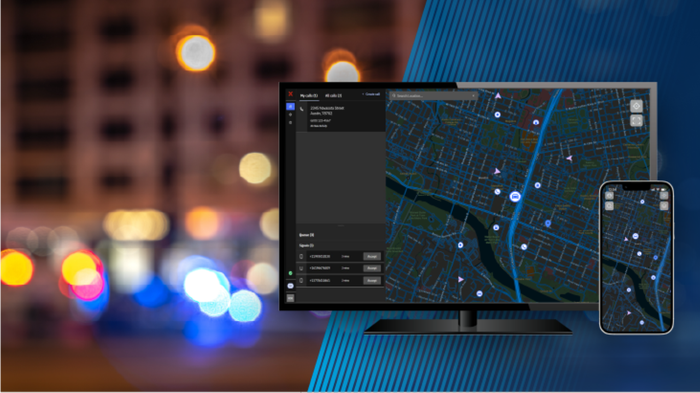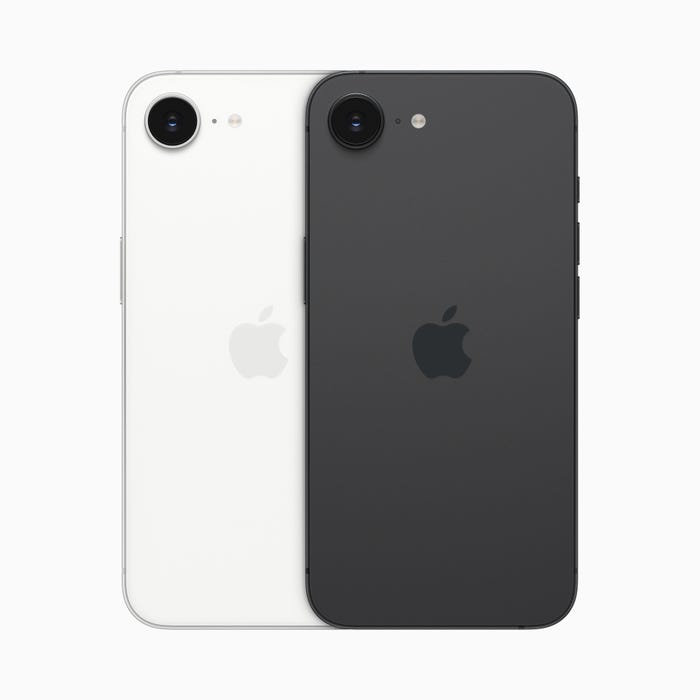L3Harris proclaims broad support for MCPTT across converged-device portfolioL3Harris proclaims broad support for MCPTT across converged-device portfolio

L3Harris today announced that 15 of its XL series LMR-LTE radios will support the mission-critical-push-to-talk (MCPTT) standard, meaning the company now has the largest portfolio of MCPTT-capable devices in the industry, according to a company official.
Todd Perdieu, director of partners, products and strategy at L3Harris, said support for a standard like MCPTT promises to be important to the future of first-responder communications.
“L3Harris is continuing our commitment to being all in on mission-critical convergence,” Perdieu said during an interview with IWCE’s Urgent Communications. “I’ve always said that P25 is to narrowband as MCPTT is to broadband … MCPTT starts to give mission-critical users and first responder the possibility of using broadband as their primary voice service. Historically, this has never been done.
“With the introduction of MCPTT in a converged radio—an LMR multiband radio with LTE capabilities—it starts to give first responders a legitimate path to using a broadband, carrier-based network as its primary voice service. It truly is an inflection point in our transition from narrowband to broadband technologies, and at least allowing our first responders the quality of voice service that they require over a broadband carrier.”
Nino DiCosmo, president of the L3Harris Public Safety and Professional Communications (PSPC) business unit, echoed this sentiment.
“MCPTT is the new standard for emergency voice communications across nationwide LTE broadband networks. It is a gamechanger that provides mission-critical customers with greater levels of seamless interoperability,” DiCosmo said in a prepared statement.
“L3Harris has been committed to advancing the MCPTT standard from Day 1. Having the most MCPTT-capable products from a single vendor provides public-safety customers with unmatched choice in devices, infrastructure, and business models—nationwide interoperability sized to meet any customer’s need or budget.”
It has been almost two years since AT&T announced FirstNet PTT, the initial MCPTT offering in the U.S. Since them, Verizon has announced MCPTT services from Ericsson and Motorola Solutions. Later, AT&T announced a second MCPTT product from Motorola Solutions and confirmed that FirstNet PTT was developed by Samsung.
These product-development milestones have not translated in large-scale MCPTT deployments to date, but Perdieu believes that could change soon, based on the adoption of BeOn, the L3Harris software platform that includes myriad applications, including a proprietary over-the-top push-to-talk (PTT) offering.
“We are very much on the front edge of that adoption curve, but what I think gives us the most confidence is our legacy application of PTT over broadband—BeOn—and how popular that’s been,” Perdieu said. “We’ve actually had a lot of customers—oftentimes utility customers—who have used BeOn as a primary source of audio service. With the adoption of broadband and the standards, we see MCPTT as a natural part of that transition from narrowband to broadband.
“We believe narrowband and broadband will coexist for a very long period of time and that the converged experience will be prominent [in the communications marketplace]. That’s why we’re putting a lot of time an energy into providing the best possible experience there.”
BeOn supports a software suite that is available only to customers that leverage the L3Harris VIDA core. In contrast, MCPTT on L3Harris devices can be used on any capable networks and will be integrated directly with the service provider.
L3Harris is seeking certification approval from AT&T/FirstNet Authority, as well as Verizon, Perdieu said. MCPTT capability will be available to ship to customers in these devices in May, he said.
Even with today’s announcement of support for the MCPTT standard, L3Harris will continue to offer the proprietary PTT application that is part the BeOn platform, according to Perdieu.
“We do see those two offerings coexisting [in the marketplace],” he said. “We will have customers that maybe don’t qualify for FirstNet services but are still interested in the capabilities of BeOn. And then we also will have, for our first responders, the ability to leverage MCPTT.
“We do see those coexisting for the foreseeable future, but we also can see those two platforms merging together somewhere in the future to become one.”
Providing customer agencies with flexible communications options that leverage disparate devices and technologies is a key part of the L3Harris strategy in the public-safety and critical-infrastructure sectors, Perdieu said.
“Understanding that L3Harris and our leadership of convergence, there is a one-stop place to shop,” Perdieu said. “What I mean by that is that, if you put all of the tools we have together with a converged device, we offer what we call the broadband managed service [BMS]—that’s the SIM and the service itself for the various carriers, as well MCPTT capabilities.
“When you put all of that together, we’re offering a total solution for our customers, and I believe that’s a tremendous value to first responders.”





